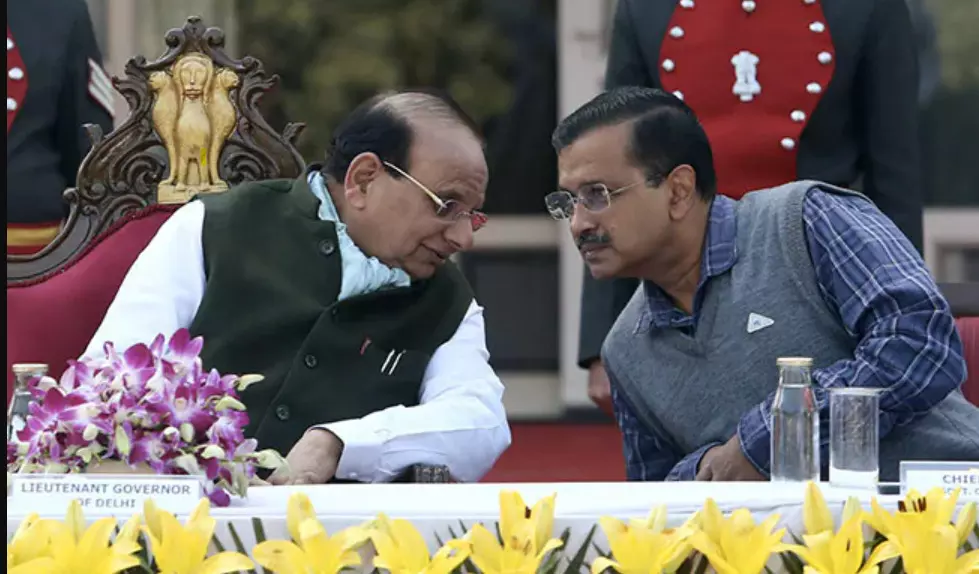Lingering slugfest

In post-independence India, the status of governance of National Capital of Delhi (NCT) has always been a matter of controversy. Even the National Capital Territory of Delhi (NCTD) Act, 1991, which made Delhi a unique administrative unit, could not resolve the longstanding conflict. In fact, the Act opened up a new set of contestations wherein different stakeholders struggled to agree on a common judicial interpretation of the law. The rift started getting wider eight years ago after the AAP came into power in Delhi with a thumping majority. Shortly after the AAP government assumed control of governance, the Centre, through an amendment, took away the powers of transfers and postings of officers from the Delhi government. After a long-drawn judicial process, a Constitution bench of the Supreme Court, on May 11, ruled in the favour of the AAP government, stating that the elected government of the National Capital Territory of Delhi has executive and legislative powers over its officials. However, through a late-night ordinance on Friday, the Central government allegedly nullified the effect of the Supreme Court verdict. The Government of National Capital Territory of Delhi (Amendment) Ordinance, 2023, provides for the institution of National Capital Civil Service Authority to govern on the matters related to transfers and postings of Group A officers and officers of Dadra and Nagar Haveli Civil Services (DANICS). The National Capital Civil Service Authority will consist of the Chief Minister (the chair), Chief Secretary and the Principal Secretary. The final decision of the authority will be based on the “majority of votes of the members present and voting”. Since the two bureaucrats will presumably be appointees of the Central government, it's very likely that the vote of the chief minister on controversial matters may be side-lined. The AAP government has registered a strong-worded reservation against the ordinance and will challenge it before the courts. It is an established fact that under the powers granted by the Constitution, the Parliament (read Centre) can overturn a judicial pronouncement through legislation, including ordinance. There have been ample instances of exercise of such powers. However, the Centre cannot pass legislations that are contrary to a judgement passed by the Supreme Court, as the judgement itself is considered a rule of law. The new legislation should remove the basis on which the court had passed the judgement. In the case in question, the Supreme Court had passed the judgement on the basis that the governance of the NCT should be under the ambit of elected representatives. Evidently, the ordinance promulgated by the Centre has done very little to remove the basis. Though, technically, the ordinance has made the ‘elected’ chief minister the chair of the National Capital Civil Service Authority, his/her decision can easily be overtaken by the ‘appointed’ bureaucrats. Furthermore, the ordinance rests the final say with the Lieutenant Governor. AAP minister Atishi is convinced that the ordinance “will be struck down by the Supreme Court instantly.” She has further alleged that the Centre deliberately waited till Friday, the eve of the SC going on a vacation for six weeks, to avoid such an outcome. The test to adjudicate whether or not the basis of a judgement is removed through an amendment ordinance, it is presumed that the amendment existed before the judgement, and an assessment is made if the court would still have come up with the same judgement. Prima facie, the ordinance doesn’t appear to pass the test of removal of basis. Notably, the Centre did not even wait for the verdict on its review petition challenging the Supreme Court’s judgement. The urgency with which the Centre has come up with the ordinance, as also the timing of it, raises questions over its political motive. If the ordinance is aimed at stalling the development works of the Delhi government, as is being alleged by AAP ministers, then it is indeed a matter of shame. The only justification for the urgency could be the concerns around the excessively used parameter of ‘national interest.’ However, since police, land, and law and order are already dealt with by the Centre, the invocation of the ground of national interest appears farcical. It may be argued that through the decades after 1991, none of the political parties — be it the INC, the BJP or even the AAP — have done enough to decentralise the power in Delhi. At best, certain parties have kept it lingering for political gains, and even switching sides as per their political interest. Political consensus and political will are required to streamline the governance of NCT. Unfortunately, both have been absent.



